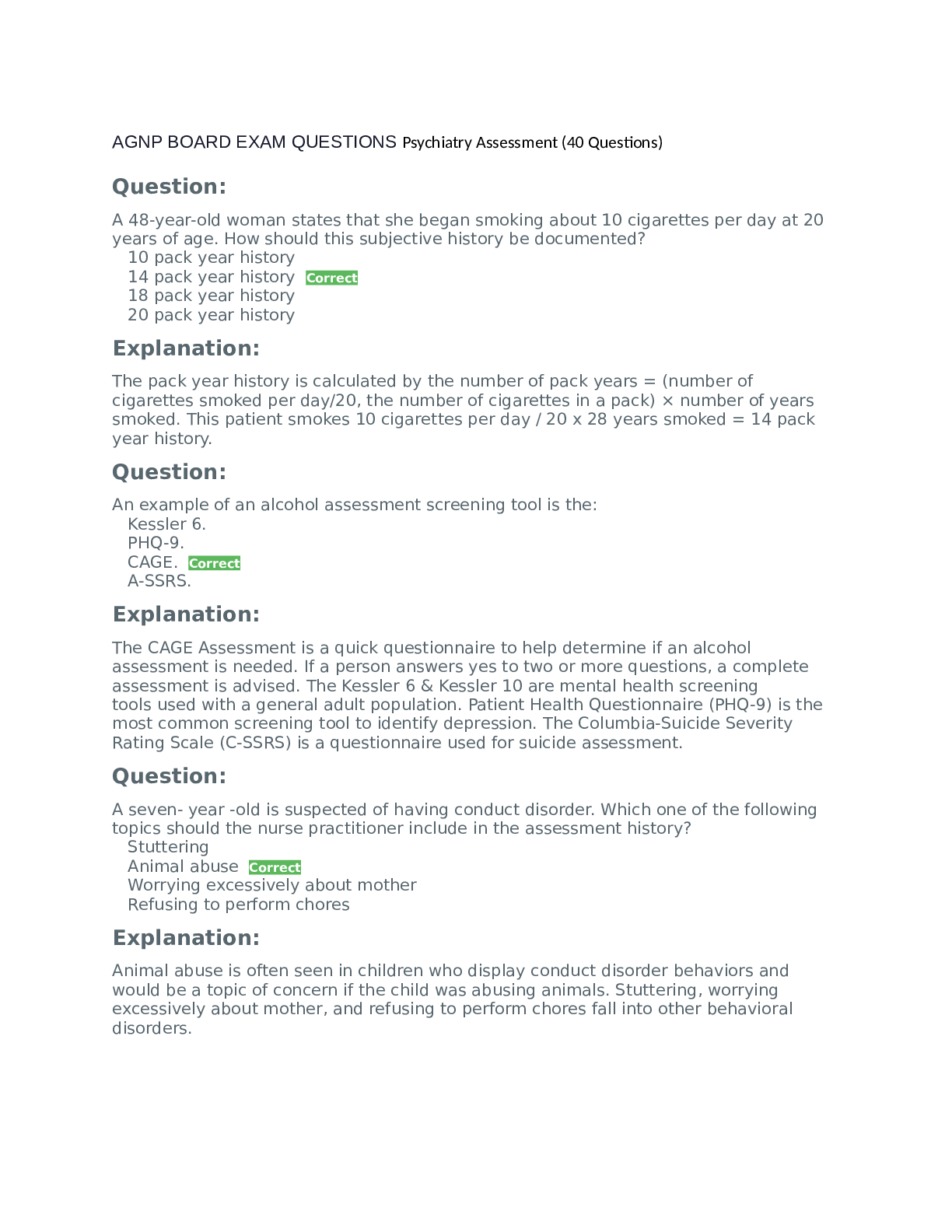HSCO 502 Test 1 Questions and Answers - Liberty University
Document Content and Description Below
HSCO 502 Test 1 Question 1 The still-face paradigm has been used primarily to study Question 2 Mrs. Harmon, the mother of 18-month-old Bryce, is concerned that Bryce has not learned to speak very well... . He has a limited vocabulary and seems content to point to the things he wants. Mrs. Harmon has read several child development books which indicate that Bryce should be in the stage of language learning. Mrs. Harmon fears that Bryce is not keeping up developmentally. Based on your understanding of the timing of developmental stages, what would be your best advice? Question 3 In Bronfenbrenner’s model, proximal processes refer to Question 4 Video response. Review the video on , page 15 of your book; from the 3 statements select which one(s) are correct. Statement 1. The teach illustrates social learning theory by modeling the process she would use to study the lesson and presents it to the group. Statement 2. In order for modeling to be effective, there must be a reward attached to motivate a child to repeat the behavior. Statement 3. The video suggests that modeling experiences could have been improved if the teacher would have worked one to one with each student opposed to having them observe this exercise as a group. Question 5 Infants form multiple attachments, to both mother and father and perhaps to a sibling, grandparent, and so on. Which of the following statements is most consistent with available data on the impact of these attachments? Question 6 Myelinization is the process which involves Question 7 Which of the following statemet is FALSE regarding chronic stress during pregnancy and its impact on the fetus? Question 8 When considering the level of trait in easy and difficult temperaments, as summarized in table 4.3, which statement is FALSE: Question 9 In considering the major structures of the brain, which of these statements is FALSE. Question 10 Contemporary developmentalists focus on which question concerning nature and nurture? Question 11 Sally, age 28, recently married John, age 45. They would like to have a child, but they are concerned that they may be at high risk to have a child with a chromosomal abnormality, like Down’s syndrome, because of John’s age. What is their genetic counselor likely to tell them? Question 12 Which statement is NOT a contribution from Vygotsky’s sociocultural theory: Question 13 Which statement about cross-cultural influence on infant attachment is TRUE: Question 14 Ms. Dawson recently gave birth to twins, a girl and a boy. Which of the following Question 15 An attempt to forestall the development of problems by promoting health and wellness in the general population is called Question 16 Recessive, defective gene alleles can cause hereditary disorders. It is estimated that most people carry recessive, defective alleles in their genotypes. Question 17 Which of the following statements does not reflect contemporary critiques of Piagetian theory that have experimental support? Question 18 Guidelines for the application of developmental research in helping professions include Question 19 The adult attachment inventory (AAI) is used to assess the quality of attachment that parent have established with their own infants. Which statement is INCORRECT regarding the finds of Main and her colleagues: Question 20 Basic emotions such as can be observed in young infants, but self-conscious emotions such as only emerge in childhood. .................................CONTINUED................................. [Show More]
Last updated: 2 years ago
Preview 1 out of 15 pages

Buy this document to get the full access instantly
Instant Download Access after purchase
Buy NowInstant download
We Accept:

Reviews( 0 )
$17.00
Can't find what you want? Try our AI powered Search
Document information
Connected school, study & course
About the document
Uploaded On
Sep 21, 2021
Number of pages
15
Written in
Additional information
This document has been written for:
Uploaded
Sep 21, 2021
Downloads
0
Views
86

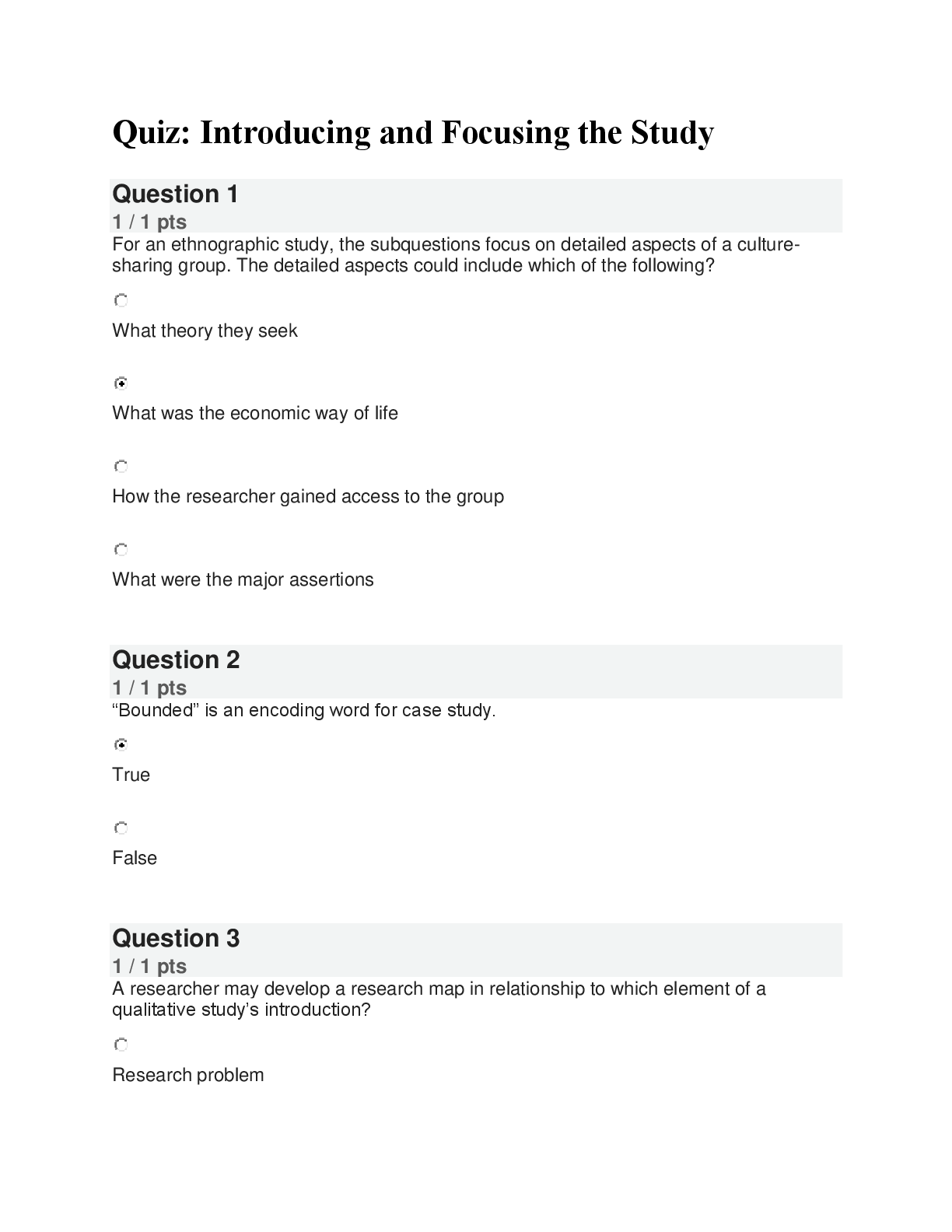

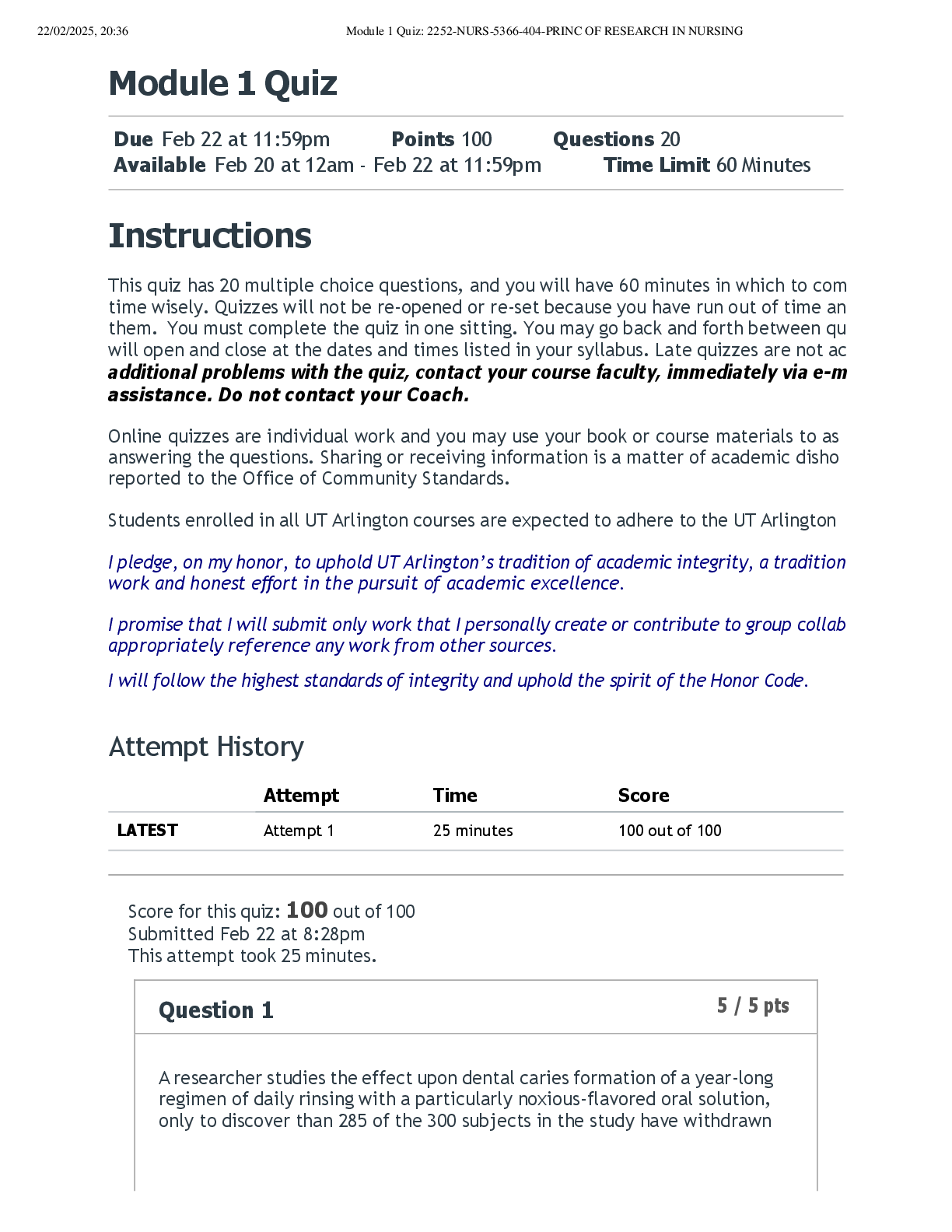
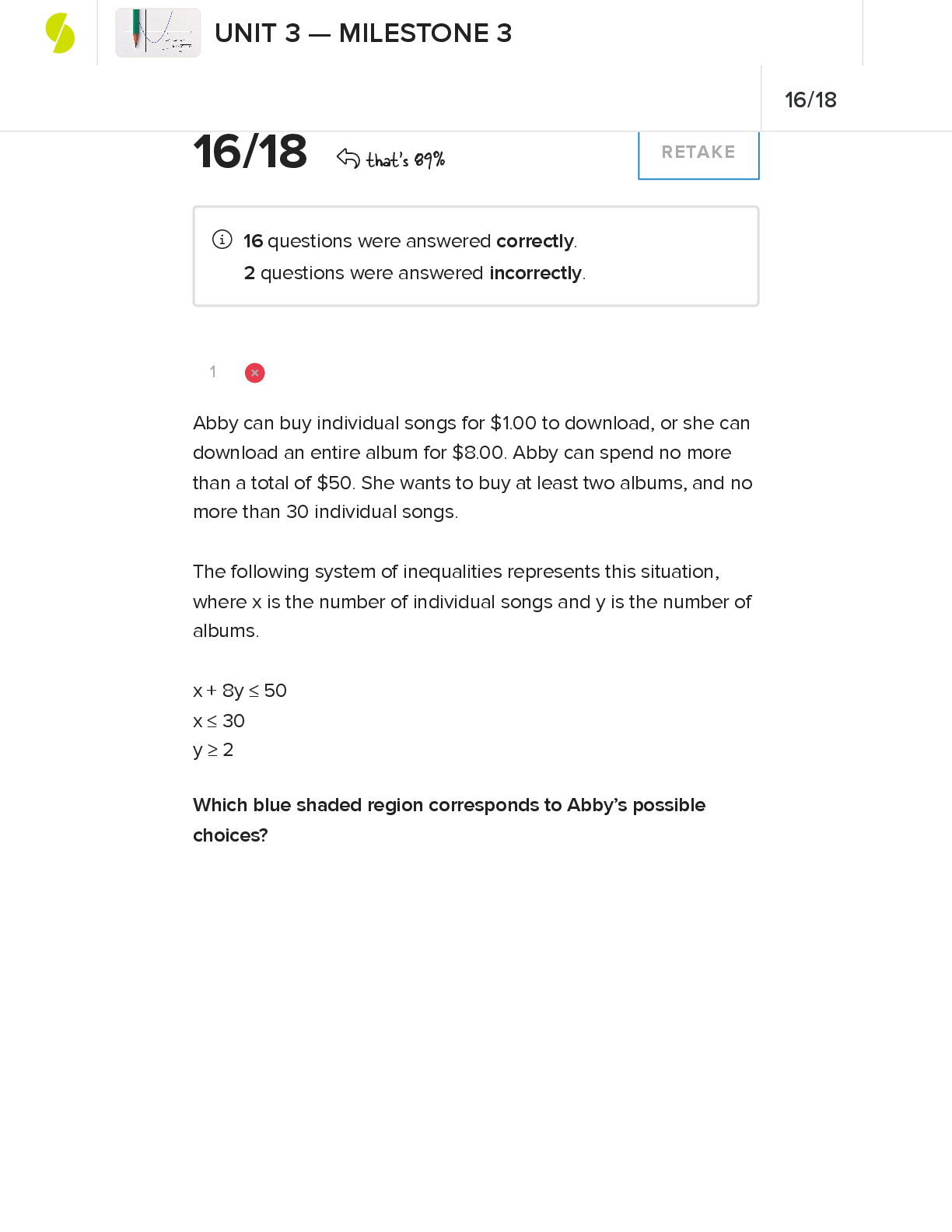
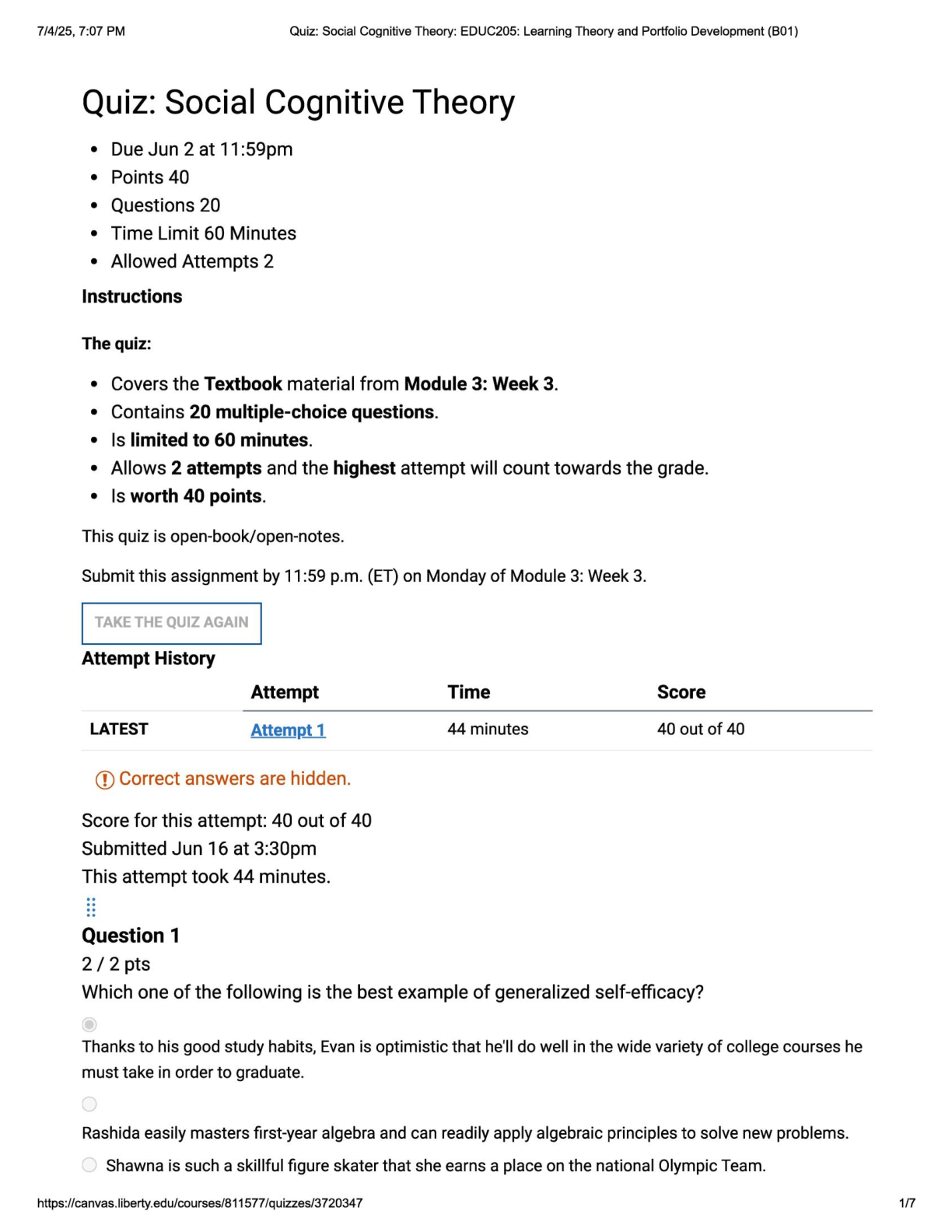
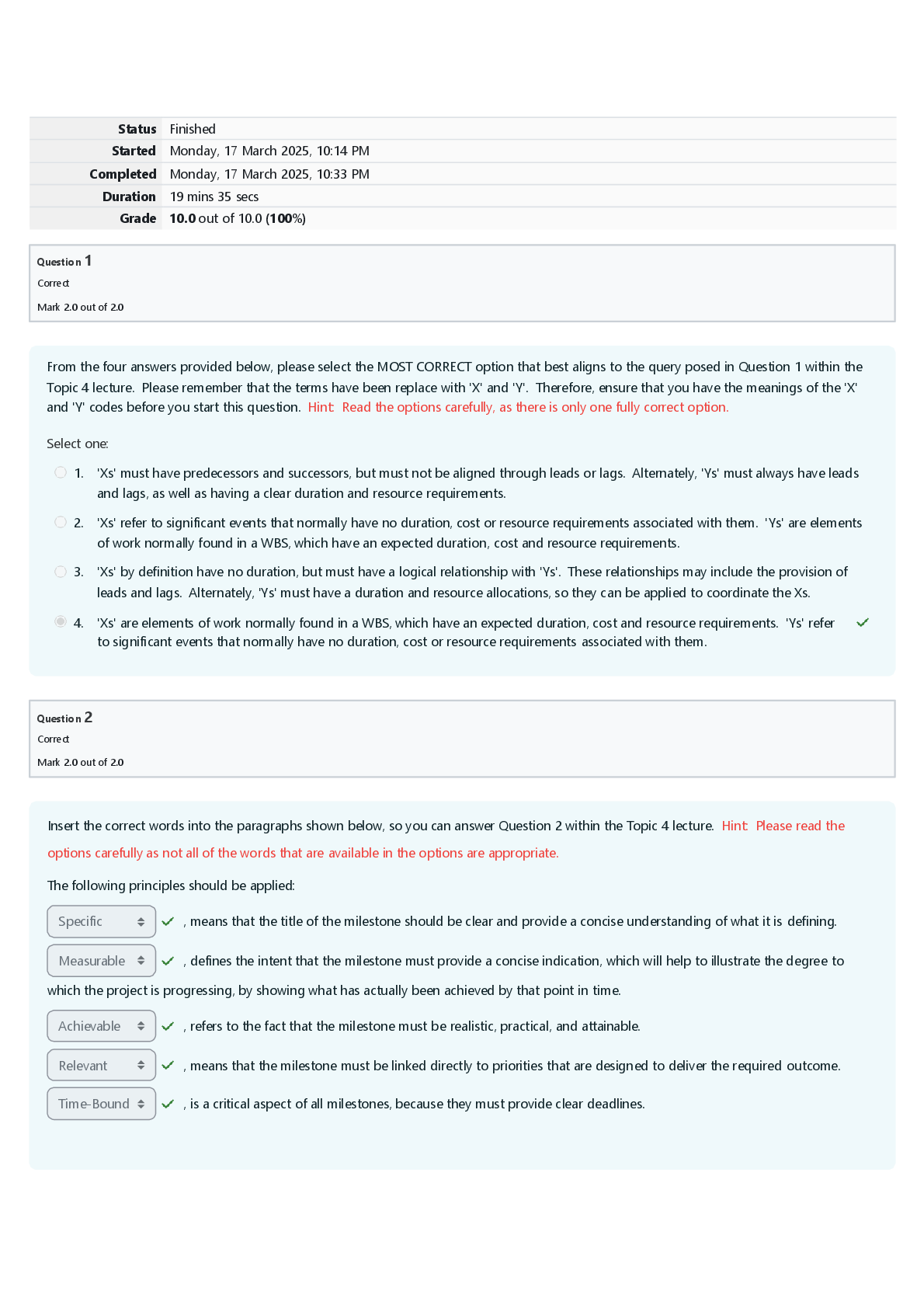
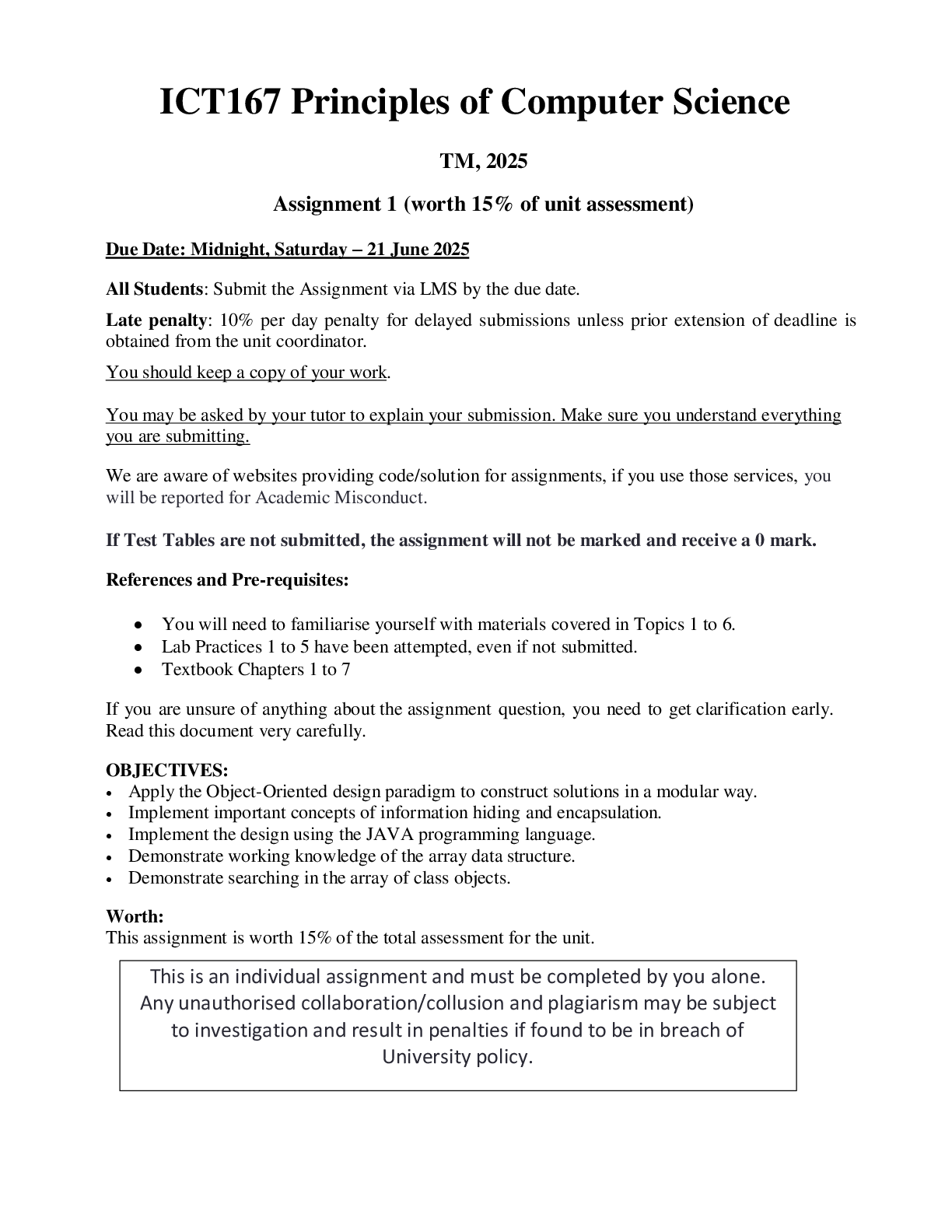
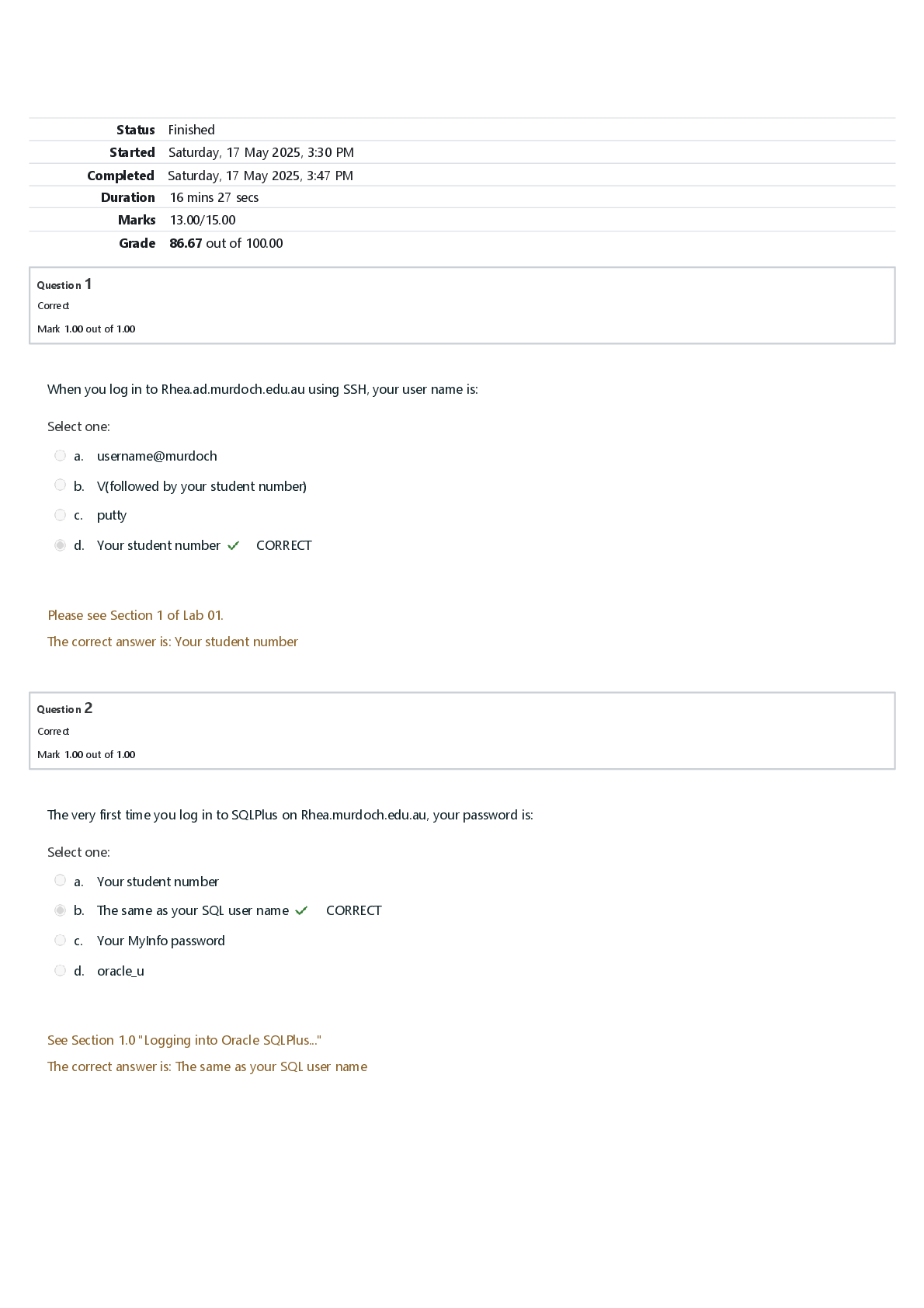

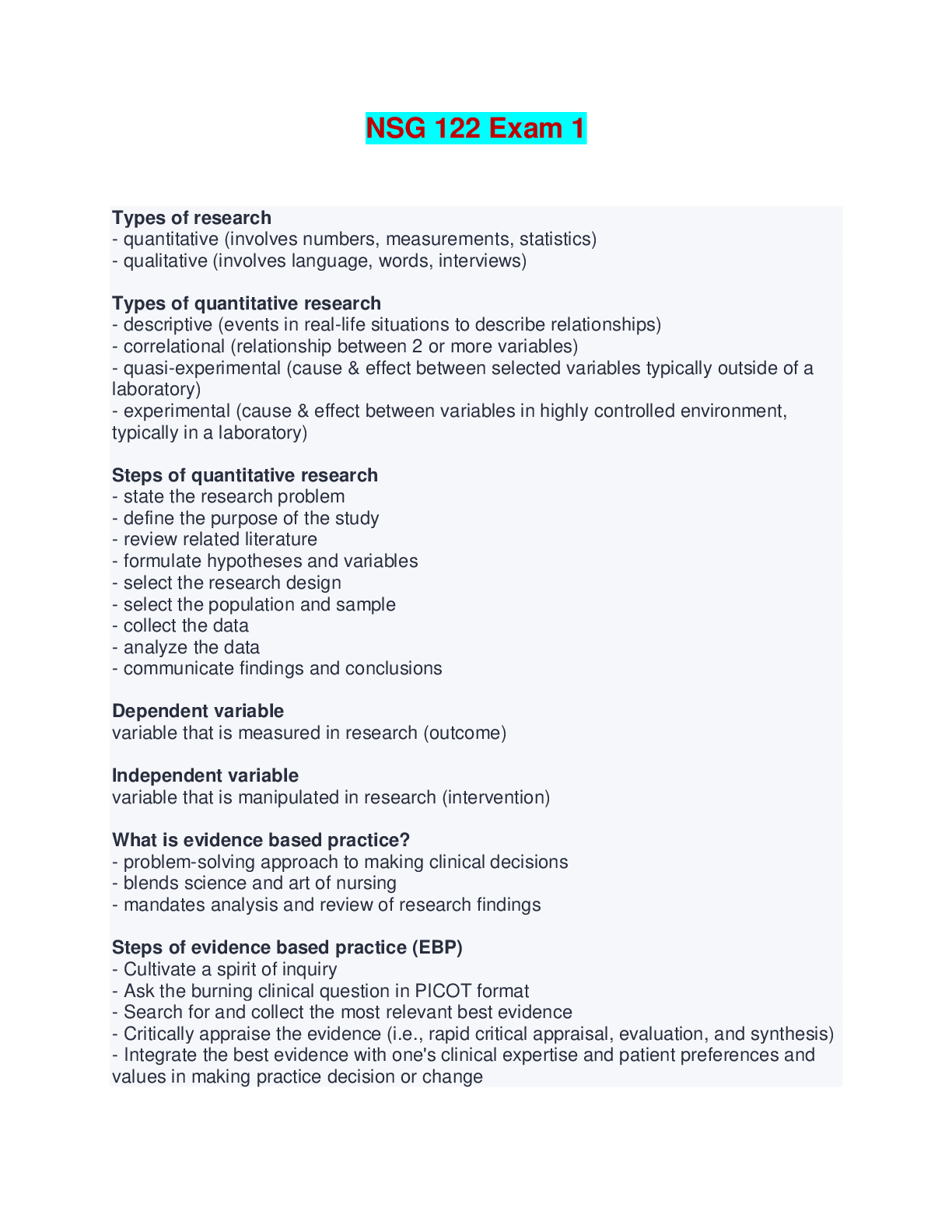

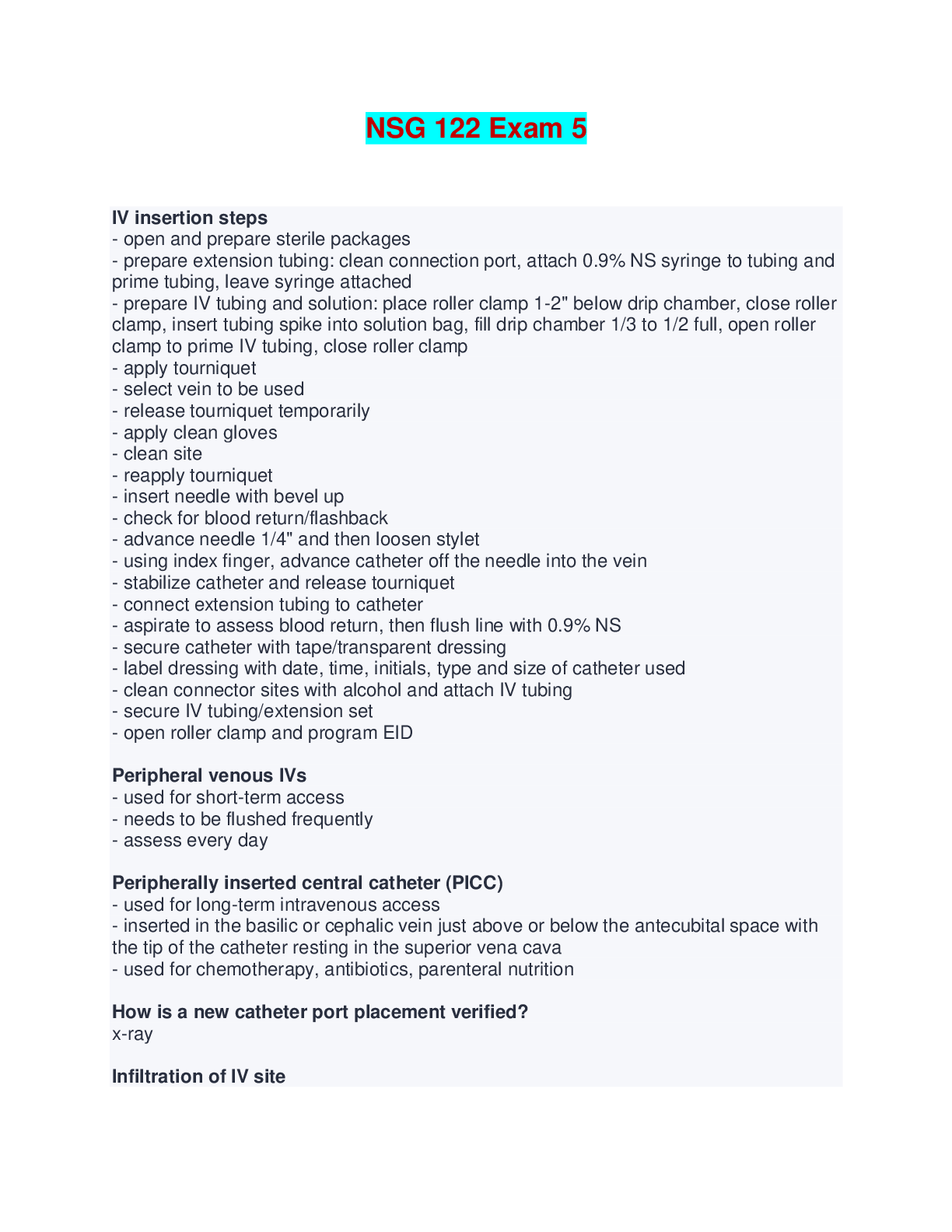




.png)


